Matchbox Twenty’s frontman on his early days, writing their late-90s hits ‘3AM’ and ‘Push’, and his equally successful solo career
Formed in Florida in 1995, the rock band Matchbox Twenty hit the music world by storm with their very first album, Yourself Or Someone Like. The debut LP spawned five hit singles – including Push and 3AM – and earned an RIAA Diamond Award for selling more than 12 million copies in the United States alone.
Then, before releasing their follow up, the group’s co-founder and lead vocalist Rob Thomas raised his band’s profile by co-writing and singing on Santana’s Grammy Award-winning 1999 smash Smooth. With that, Matchbox Twenty continued their momentum with two more multi-platinum albums Mad Season in 2000 and then More Than You Think You Are in 2002.
In addition to selling more than 30 million records worldwide, Matchbox Twenty has also earned five Grammy nominations and four American Music Award nods. Furthermore, Rob has received three Grammys, 11 BMI Awards, and two Billboard ‘Songwriter of the Year’ honours for both his chart-topping solo work and high-profile collaborations. He was also fifth on Billboard’s Top 20 List of Hot 100 Songwriters 2000-2011.
In 2019, Rob picked up the thread from his formative years and opened a new chapter with his fourth solo album, Chip Tooth Smile. On hearing the record, we picked up the phone and caught up with Rob relaxing at his home in New York, getting ready to go back out on his solo tour…
Click here for more interviews
Take us back to your early years. How did it all start?
“When I think I was 14 or 15 I started singing in bands, doing covers. I had a group of friends who were a little older than me – they were seniors, I was a freshman. It was the late 80s so we were doing Hungry Like The Wolf [by Duran Duran] and (I Just) Died In Your Arms [by Cutting Crew], we also did some Depeche Mode like Blasphemous Rumours – we were doing a little bit of everything.
“We were playing hotel pool parties in Florida, and having little gigs like that, so we were actually gigging around when I was 15 years old, but I wasn’t doing a lot of originals then. I started writing but not very well. I was writing kind of bad versions of Lionel Richie songs!
“Then, when I was probably 19 or 20, I started writing again and I wrote 3AM, and that kind of became the first song that I wrote that I thought people should hear. And it’s also the way I first unlocked the vault in realising that if I could write songs about my life, there was a catharsis there and I could wind up saying things in a song that I couldn’t say in a regular sentence.”
Was that before Matchbox Twenty really formed?
“Well, it was pre-Matchbox Twenty but there were two guys – Paul [Doucette] and Brian [Yale] – who are in Matchbox Twenty, who were in this band. So when I wrote 3AM there was really no band. Then we got together and started forming a band and that was the song actually that we played for Paul and Brian when they joined in, so 3AM was what kind of brought them over and made them want to make a band with me.”
Tell us more about how you wrote 3AM?
“Because it meant something to me, I had this feeling that if it really did something to me then in the DNA of it, it was going to have to mean something to someone else. I wrote it about my mother who had cancer and me, when I was like 13 years old, having to come home from school and be like a caretaker, from a really early age.
“But I also wrote it in a universal way where, over the years now, people have taken that song and think it’s about their relationship or their wedding – as I think you should. I think, if you write a song about a subject matter that’s close to you, you’re also kind of writing about how that makes you feel. Because everybody can relate to the feeling of something, even if they haven’t gone through exactly what you went through.”
Did you consciously decide to write about that difficult moment in your life, or was it more subconscious and you uncovered what it was about as you went through the process?
“I think I just had the chord progression and the melody in my head. I think every song I do starts like that, or just the melody, because I think that’s key: the melody is what draws you in for the first listen. But then I knew… when you get a melody going, it has a colour to it, it has a feel to it, so all of a sudden it harks you to something, so you kind of attach what you’re writing about based on the way that the melody makes you feel.
“And I kind of knew that 3AM was going to be about my mother. I think I even had the line, ‘She said it’s cold outside / She hands me my raincoat’ and I thought there was something very motherly, very maternal, about that.”
It sounds like it was pretty much your song, but you’ve got John Leslie Goff and John Joseph Stanley with you and Brian on the credits.
“I didn’t know anything about publishing, so I wrote these songs and then John and J would come in with a bunch of copyright papers and go, ‘Here, everybody sign these,’ and I was like, ‘Okay.’ So I signed away, which is part of the reason why I didn’t want any of the other songs to wind up on our record. The only one that they’re still on is 3AM.”
Push was the single that really launched you as a band, so how did that come together?
“It was actually me a Matt Serletic, who produced our first records. We were in New York to meet with the head of Lava Records, who eventually signed us, but that night he blew us off. So we were stuck in the hotel that night and started doing a writing exercise where he opened up a book and pointed to a word, and the word was ‘rusty’.
“So I picked up the guitar and sung, ‘I’m a little bit rusty,’ and we kind of built the whole song around that line – we thought about, what if you’re a little bit rusty in life? Then it became a song about emotional manipulation.”
Was it easy to finish from there? Did it flood out or did you keep going back and rewriting it?
“That song just poured out, as some songs do. Even when we got to the bridge, we rolled right into it and I remember Matt looking at me, going [sings] ‘Crazy, crazy…’ We walked out of that hotel room with a fully finished song and we kind of knew we were onto something. There’s an old adage that goes: you have your whole life to write your first record, and only six months to write your second.
“But, because the band I was in had broken up, I got rid of all those songs that I wrote over the years of being in a local band. With the exception of 3AM, everything I wrote for the first Matchbox Twenty record, I wrote in a two or three month period before it was recorded, so that was like my second record.
Do you think that helped, that you had to get all that material together?
“Yeah, I think so. There wasn’t a lot of second-guessing or over-thinking. Also, the guys that weren’t in the band anymore were convinced that there was no possible way that I was going to make it anywhere without them, so I think I also had a little something to prove to myself that I could be the impetus for all of this, and that I could be the reason why we have success.”
We read somewhere that you write all the time and it’s a lot easier to come up with ideas than it is to edit them…
“I think volume is key. Every time you get inspired, you should sit down and follow it because you don’t know where that’s gonna go. Sometimes you’ll sit on something for a year and then you’ll finish it later, and sometimes it’ll all come out at once. But I think, by the time I make a record, I’ve probably written four records-worth of material, then I pick through it. Then I think you’ve got to be honest with yourself – it doesn’t mean it’s four good records. You’ve got to make one great record out of four okay albums that you’ve kind of worked on.”
So you aim for quantity first, before you worry about quality?
“I think so. I mean, sometimes with those songs that never see the light of day, I’ve made them in my studio and I’ve spent eight hours doing a full demo – with bass, drums, counter melodies and counter instrumentation – just to get it somewhere, so I know that I’ve given it every possible chance. But then I might just take the chorus melody because that’s the only thing I like about it.”
You were pretty much the sole songwriter in the band at first, but then you appear to get the other guys more involved. How did the situation develop?
“On the first Matchbox record I pretty much wrote everything, on the second one I think I wrote everything except for one song, and then on the third record we started writing a little more – How Far We’ve Come is really the first single that we all wrote together. In all honesty, when we did the first two records, I was the only one writing – it just wasn’t something they were doing.
“Then Kyle was writing but he wasn’t quite up to that level, then through the process of doing this for so long, I think everybody just became better writers. And having that collaborative effort was what led me having to do solo records, because I wrote so much that I needed a place to unpack those songs and a place to get them out, and follow my own intuition. So I could put my ego aside for a minute, sit down in a room with them and we can all write together.”
Let’s talk about your solo stuff. How do you decide who to collaborate with and how are those co-writing relationships different from the band dynamic?
“On the first solo record, I pretty much wrote everything and then Matt Serletic had written on a couple of those, because he was the producer. On the third solo album, I tried a new experiment where I would write with Ryan Tedder or a bunch of different people, because I wanted to get some new inspiration. But then I realised I didn’t love that so much, so with this one I went back to just starting with me at the piano or me on the guitar, just writing everything.
“Then you have moments when me and Butch [Walker, the producer] wanted to write a song together, so we wrote Timeless. Or I’m with Benny Blanco, so we’d work together. And then Matt Beck who’s my music director would send me a really great idea for a verse, for It’s Only Love. So for the majority of the time, I’m writing everything out, but if something comes at me that feels like a better version of what I’m doing, I’ll figure out how to fit that in there.”
Paint us a picture of your ideal songwriting environment? When and where do you like to create?
“It’s always at different times. Like last night, I was just about to fall asleep in bed and I jumped up because I had a melody and I had to go suss it and get it on my recorder so I didn’t forget it, and that was at one o’clock in the morning. Also, if I’m off the road and I’m not very busy, I like to make a job out it – I like to wake up and have coffee, answer some emails, go down to the studio and sit there for a few hours, to go fishing and see if I can find inspiration.
“Because I think there are two ways to go about it: sometimes you’re just inspired and a melody hits you out of nowhere, and then sometimes you have to go and make that inspiration – you go downstairs, turn on the studio and start playing around with melodies on piano until it all comes out. I think if I can sit in a room with a glass of wine, a piano and a guitar, then I pretty much have all the tools that I need!”
Do you like to write specifically for a project, or do you prefer to let ideas emerge, like you did last night, and then start to think about how you might use it?
“I think I have a ‘phantom idea’ but it never turns out. Like when I started this record, I thought I was going to make my Nebraska [Bruce Springsteen’s sparsely recorded acoustic album] and it just turns out that wasn’t what was in me. There was a couple of those moments, but on the whole, my head was somewhere else, so I had to follow that. I couldn’t find an arbitrary aesthetic that I had to adhere to, because that wouldn’t have been as genuine. So I had to follow wherever the songs I wrote would take me.
“It’s the same on the road, there’s a different environment, an excitement, an energy, so you always make sure you have a guitar on hand, because the amount of times I would just sit on the steps of the bus, writing songs. And sometimes you think it’s the greatest thing ever, but by the end of the year you might’ve written so many songs that you forgot about that one that you thought was the greatest song of all time!”
You co-wrote and featured on Santana’s global hit Smooth. What other artists have you written songs for?
“After that, even on that record [All That I Am] I wrote a song for Mary J Blige and Big Boi [My Man]. And then a song for Seal and Musiq Soulchild, then I wrote three songs for Willie Nelson and a song for Mick Jagger, and Marc Anthony, and Travis Tritt… So I went through a period – probably due to the fact that I wasn’t doing solo records – when I’d do Matchbox records and then in my time off I’d write for other people.”
Is it something you’d like to do more?
“Yeah, I think if I had time I’d love to go to Nashville and write. It’s a really good way to expand what your idea of a blank page is – if you see other people and how they do it, and be a part of their process. Also, if you’re writing for someone else, it puts you in a different personality mode – you’re not just thinking about what informs and shapes you, you’re trying to put your words into somebody else’s mouth, which is an exciting process, sometimes.”
Rob Thomas’ latest solo album Chip Tooth Smile is out now. Find out more about Matchbox Twenty frontman at robthomasmusic.com
Click here for more interviews

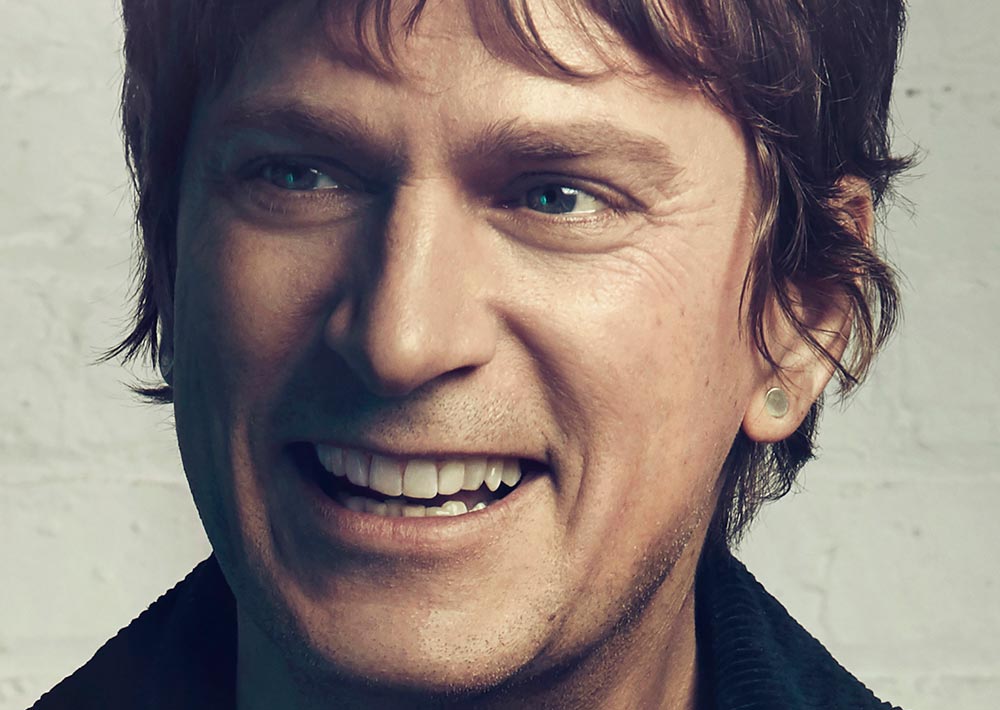

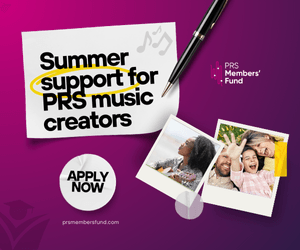
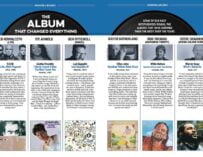
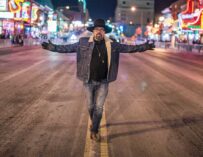






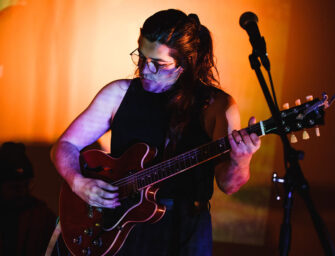

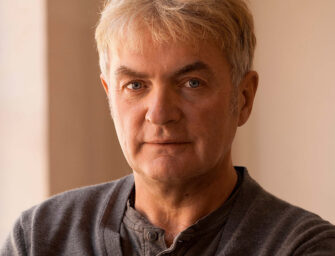




















Related Articles